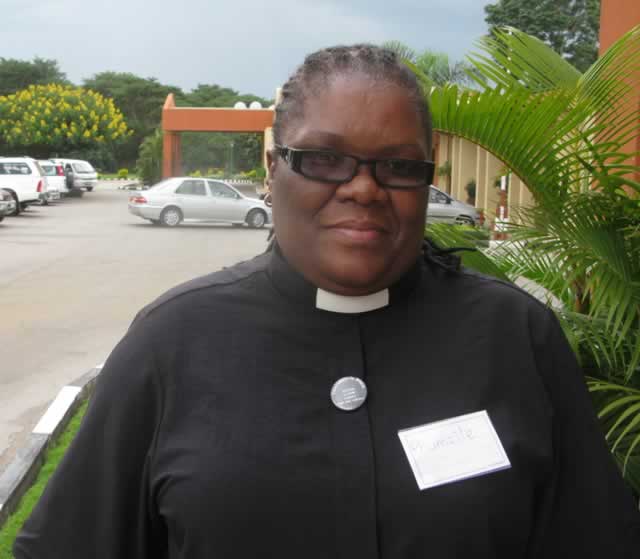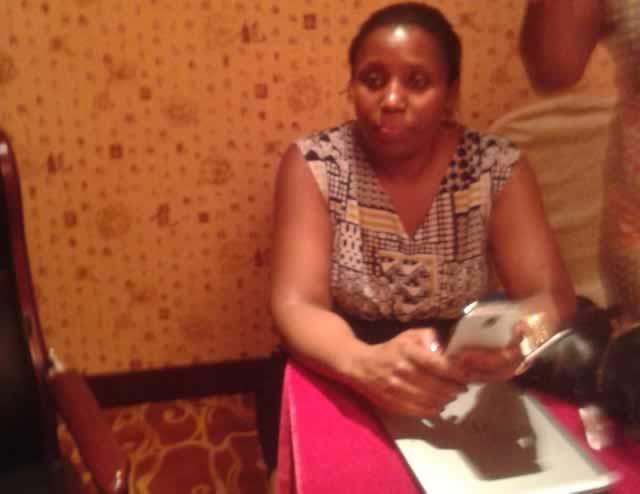Silent victims of HIV/Aids scourge
Mufakose, Harare.
Lynette is due to sit for the Ordinary Level examinations at the end of this year. Liana, who is two years her junior, is in Form 2. Lynette is worried she may fail to raise the required examination fees, so she runs the risk of her four years in secondary school going to waste.
“I am supposed to sit for the O-Level exams sometime in October this year. I am afraid the registration period might close before I raise the requisite exam fees. Our headmaster announced that we must start paying and late payments will attract a penalty or even failure to write,” she said with concern.
“I would have loved to write all the nine subjects that I am doing but I am afraid I will not be able to raise the full amount for all of them. Right now I have saved enough for two subjects only. I may end up writing five or six because of the cash constraints,” said Lynette.
The two girls, who live along Mufakose Drive, have a mountain to climb. At their tender age, they have lived alone with only a tenant acting as a “guardian” at times. When a guardian is needed and the situation needs one to fork out some money, the girls have many a time been found wanting. With most people earning salaries below the Poverty Datum Line, it is impossible at times for well- wishers to help as much as they would like.
The teen sisters live in an incomplete seven-roomed house. Only four rooms are habitable and the sisters use one room only while the others are being let.
“We use one single room for our cooking and sleeping. We have a tenant who uses the other three rooms. We need the money to pay the utility bills and buy food,” said Lynette.
In the kitchen-cum-bedroom was a 5kg mealie-meal pack which would run out in the next two days.
The girls, however, said it would last a week since they only had one main meal a day so as to conserve the staple food. The 750ml bottle of cooking oil had run although other basics like sugar, salt and tea leaves were still available. They had an unopened 2kg pack of sugar which lasts them two weeks.
“We will only get some money from the tenant on the 30th or the 31st so the little food we have should last till then,” the sisters said in unison.
The girls, who are enrolled at one of the local secondary schools, said they had not registered with the Basic Education Assistance Module. They intimated that the school required their parents’ death certificates to enable them to join the scheme. Unfortunately they did not have the required papers.
The local councillor tried to assist but to no avail
The girls have lived for nearly a decade on their own, thanks to the tenant who has not abandoned them even when power was cut due to non-payment of bills.
“Our mother was the first to die. Then I had just started school and was in Grade 2. My sister was in crèche but stopped attending when mom died. We then lived with our father but I could not understand why I had miss school on numerous occasions. My father’s health deteriorated and he stopped going to work. I had to look after him and my sister and that was just a year after our mother’s death,” said Lynette.
“Dad did not get any better and one day as I arrived home from school I found people seated under that mango tree. Dad, whom I had bade farewell before I left for school in the morning had died right in this room,” she said wiping a tears streaming down her cheeks.
“Life then took a turn for the worst. Our tenant, who used to occupy one room then suggested that his family moves into two more rooms so that we could have something on the table.
“In fact, a man from the neighbourhood, a Mr January, has acted as a guardian as he always checked on us. At times he found us with no food and would buy us some whenever he could.” Lynette and her sister are both HIV negative but are active members of a support group.
“I remember vividly how people like Mr January visited us and treated us like his own children and there were others who treated us with disdain. They said it in our face that our parents had died of Aids and we too were going to die. I was scared but the support group kept visiting us. I was so scared that my sister and I would die like mom and daddy,” said Lynette.
“I finally got the courage and asked Mr January to take us for an HIV test last year. You cannot imagine the relief I felt after both of us tested negative. The only family we had known then was the support group, hence we have remained active as affected members,” she said.
The two girls are peer educators at their school and their knowledge about the dreaded disease belies their tender ages.
“We have been involved in HIV awareness campaigns in Mufakose and have helped those who have walked the same path as us,” said Lynette.
“It is tough being an orphan especially if you are a girl as some ‘well-meaning’ neighbours may be out to take advantage of you. In one instance, a man who lived across the street used to give us foodstuffs in exchange that I do his laundry which I did not have a problem with.
“The man has since moved suburbs after he attempted to rape me. The neighbours heard my screams and came to my rescue. He ran away and only came back in the dead of the night and sneaked out after collecting his belongings,” she said.
The girls are surprisingly mature for their ages. Their only wish is to raise enough money for Lynette’s exam fees.
“We last had meat at Christmas as we are saving every cent. With luck we may have enough for the public exams by the end of March. The rest is history as God takes care of us,” added Liana.
The house which is neither walled nor gated is visible from the main road. The rest of the house is on box level and any well-wishers would change the girls’ lives were someone to finish off the house.
“I hope to raise enough money for six subjects and I know I will do well. I intend to train as a teacher. I would love to work in my community. I will continue as a peer educator. I intend to finish off building this house as it is all that our parents left us with,” said Lynette.
That she is concerned with sitting October exams just as the year begins is an understatement. Most children her age are just happy to have opened for the New Year but for Lynette, the Herculean task of being a mother to Liana and raising exam fees is likely to take its toll on her.
The two girls like most orphans stuck between a rock and a hard place. Some orphans have been lucky to have grandparents or relatives, but in most instances it is either they are on their own or with very old grandparents.
The HIV prevalence rate in Zimbabwe has gone down from a peak of around 26 percent to 13,7 percent in 2010, thanks to concerted efforts by stakeholders and the general populace. Some people may argue that the prevalence rate could have gone down because of natural causes. True, many people have died of Aids-related diseases but availability of information, ARVs, behaviour change and correct use of condoms have helped a lot.
Although the prevalence rate has gone down, we can- not sit on our laurels as it is still unacceptably high.
Zimbabwe has 1 700 000 people living with HIV/Aids of whom 890 000 are women and 160 000 are children. Aids-related deaths translated to 180 000. This resulted in 1 100 000 orphans being left vulnerable. (UNAIDS/WHO 2006)
Southern Africa is reported to be the epicentre of HIV spreading and this retards economic growth.
In South Africa, which has 5 500 000 people living with HIV, has 3 100 000 women infected while 240 000 children live with HIV, and due to Aids-related deaths 1 200 000 children were orphaned.
Another country burdened is Mozambique which has 1 800 000 people living with HIV of whom 960 000 are women. The country’s death rate due to the epidemic stands at 140 000. The number of infected children stands at 140 000 and the country has 510 000 orphans, said a training manual for journalists (Mediating HIV and Aids in Southern Africa) by Panos and Sida. South Africa, Mozambique, Zambia, Botswana, Swaziland bear the brunt of HIV. Why? Could it be due to cross-border trading, mining and farming communities or lack of seriousness in behaviour change.
In the late 80s countries in Central Africa bore the brunt of HIV but have turned the scales around. It is possible.
Personal commitment by all those infected and affected is required to see the spread of HIV getting to zero. Leaders have the power to make universal access to medication a reality. You have the power to stop the spread of the virus too.
We may have passed crisis mode as a country but we are still in the woods and together we can make a difference.
l [email protected]









Comments